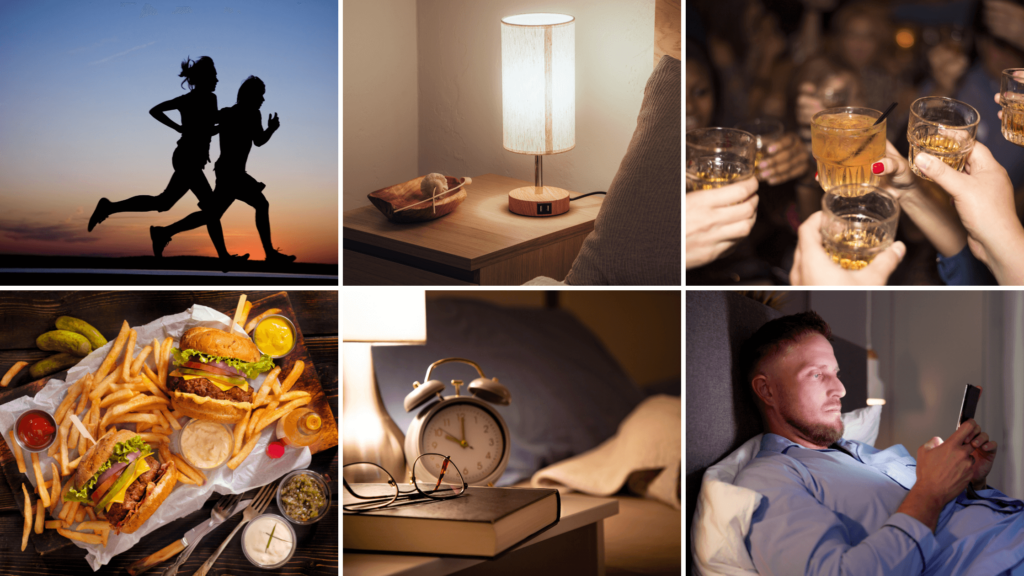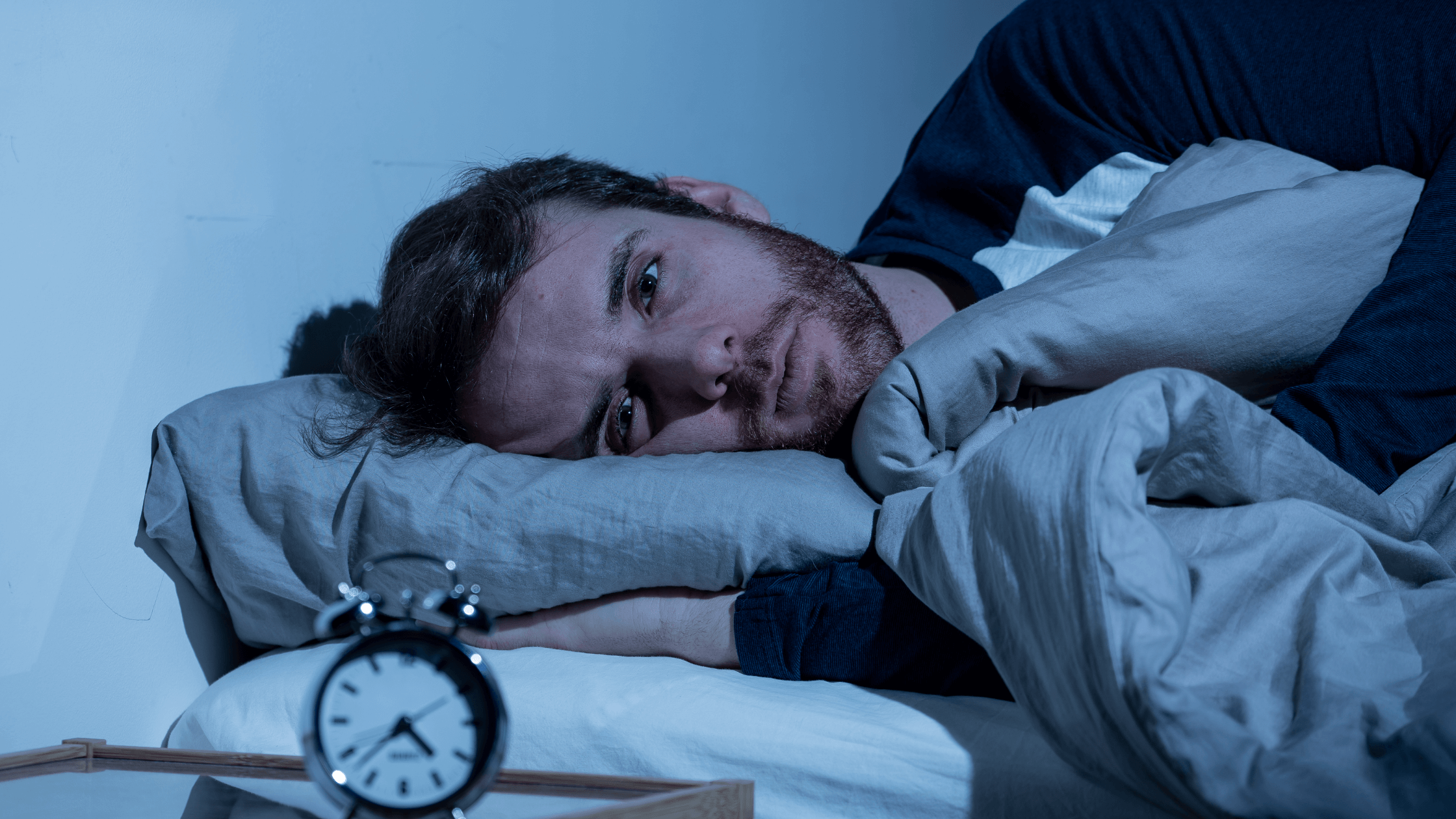Struggling to get a good night’s sleep can feel like a never-ending cycle, especially when life gets hectic. For those in high-pressure jobs like construction or engineering, lack of sleep isn’t just about feeling tired—it can impact safety, productivity, and mental health. Small changes, like sticking to a bedtime routine, creating a screen-free wind-down period, and limiting caffeine intake, are some strategies to help you wake up refreshed and ready to tackle a new day.
Sleep and construction

It’s no secret that getting enough quality sleep helps you perform better on the job site. Studies have shown that sleep deprivation can impair focus, coordination, and reaction time, which are vital for staying safe on the job. The U.S. Occupational Safety and Health Administration (OSHA) reports that construction accounts for 21.1% of all workplace fatalities, with fatigue and sleep deprivation often playing a significant role.
But despite its role, many construction workers don’t get the rest they need. A study published in the International Journal of Environmental Research and Public Health found that 46.5% of construction workers reported poor sleep quality, highlighting the widespread nature of this issue. Stress from tight deadlines, the physical strain of labor, and even lifestyle habits make it hard to wind down at night. This lack of sleep reduces productivity on the site, putting workers and projects at risk.
Why construction workers don’t get enough sleep
Sleep deprivation among construction workers often stems from daily habits and environmental factors. Here are the main contributing factors to the problem:
- Stress: Meeting tight deadlines and managing workplace pressures leaves workers mentally restless, making it harder to fall asleep. Chronic stress also raises cortisol levels, which disrupt sleep cycles.
- Devices: Using phones, tablets, or computers before bed exposes workers to blue light, which blocks melatonin production and delays the body’s natural sleep rhythm.
- Caffeine: Consuming coffee or energy drinks late in the day keeps the brain stimulated for hours, reducing the ability to fall asleep quickly.
- Irregular schedules: Construction workers often work long shifts or rotate between day and night work, which disrupts their circadian rhythm and makes it harder to maintain consistent sleep patterns.
- Noise and environmental factors: Living in noisy neighborhoods or working away from home often leads to poor sleep environments that reduce rest quality.
- Alcohol: While some use alcohol to relax after a hard day, it interferes with the body’s deep sleep cycle, leading to fragmented and lower-quality rest.
6 things to avoid as a construction worker to get a better sleep

Better sleep starts with eliminating habits that disrupt your rest. Drinking caffeine late or staring at your phone before bed keeps your body and mind alert. Replacing these habits with calming alternatives allows you to fall asleep faster and wake refreshed.
1. Stressful conversations or activities (including exercise)
Talking about heavy topics or engaging in intense activities, like arguments or late-night workouts, keeps your brain and body active. This increased adrenaline and heart rate makes falling asleep much harder.
Do this instead: Replace stressful activities with calming ones, like journaling, meditating, or listening to soothing music. Consider a bedtime yoga sequence to calm the body if you’re craving movement. These help lower your heart rate and prepare your mind for rest.
2. Using bright lighting
Bright lights in your home during the evening trick your brain into thinking it’s still daytime. This blocks melatonin, the hormone that helps you fall asleep and increases cortisol.
Do this instead: Use dim, warm-toned lights in the evening. Switch to red light bulbs or lamps, which don’t interfere with melatonin production.
3. Consume alcohol or caffeine
Drinking alcohol might make you feel sleepy at first, but it disrupts your sleep cycles and reduces overall restfulness. Caffeine’s elimination half-life is up to 9.5 hours, meaning it can be in your system well past bedtime, keeping your mind alert when it’s time to unwind.
Do this instead: Skip caffeine in the afternoon and limit alcohol intake before bed. Instead, drink herbal tea or water in the evening to promote better sleep.
4. Eat a big meal
Eating a large meal before bed forces your body to focus on digestion when it should be winding down. This can lead to discomfort and make falling asleep more difficult.
Do this instead: Finish your last meal at least two hours before bedtime. If you feel hungry, have a light snack with protein and healthy fat to maintain blood sugar levels throughout the night.
5. Skipping a bedtime routine
Skipping a bedtime routine leaves your body without signals that it’s time to sleep. This lack of structure can lead to tossing and turning.
Do this instead: Create a simple bedtime routine you can follow every night. For example, read for 20 minutes, dim the lights, and do some light stretching to cue your body to relax. Alternatively, consider deep breathing exercises or relaxation techniques to ease your mind and body into slumber.
6. Use devices (or anything with a screen, including the TV)
Staring at screens before bed exposes you to blue light, which blocks melatonin and keeps your brain stimulated long after you’ve put the device away.
Do this instead: Turn off devices an hour before bed. Use this time to read or prepare for the next day to help your body and mind relax. If using a device is a must, consider blue light-blocking glasses or light software like f.lux.
By avoiding these common habits, you create an environment that supports better sleep and leaves you feeling refreshed in the morning.
When to see a professional
Knowing when to seek help for sleep problems can protect your health and improve your quality of life. While a few restless nights are normal, consistent sleep struggles often signal deeper issues. Pay attention to these symptoms and take action if they persist:
- Persistent difficulty falling or staying asleep: Ongoing insomnia disrupts your life and leaves you chronically sleep-deprived. Speak with a specialist if this lasts for more than a few weeks.
- Excessive daytime sleepiness: Feeling drowsy during the day, even after sleeping all night, often points to conditions like sleep apnea or narcolepsy.
- Loud snoring or gasping for air during sleep: Snoring or gasping for breath can indicate sleep apnea, a disorder in which breathing repeatedly stops and starts while one sleeps.
- Unpleasant sensations in your legs with an urge to move: Discomfort in your legs, especially at night, often signals restless legs syndrome, interrupting restful sleep.
- Frequent morning headaches or dry mouth: Waking up with headaches or a dry mouth may suggest a sleep-related breathing problem, such as sleep apnea.
- Acting out dreams during sleep: Moving, talking, or swinging your arms while dreaming might indicate REM sleep behavior disorder, which affects your brain’s ability to control movement during sleep.
If you experience any of these symptoms, visit a healthcare provider or sleep specialist. Taking action early ensures you get the treatment you need for better sleep and overall health.
Bottom line
Sleep impacts how you work and feel and your ability to stay safe, especially in a demanding job like construction. Skipping rest doesn’t just leave you tired—it reduces your focus, slows your reaction time, and increases your chances of making costly mistakes. By avoiding sleep-disrupting habits and creating a routine that helps you relax, you can wake up feeling ready to take on the day.
Struggling with sleep or looking for more ways to stay healthy on the job? Subscribe to our newsletter for practical health tips on improving sleep quality. From incorporating supplements known to help improve sleep quality to habits that help lower your blood pressure, we’ve got you covered.


